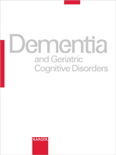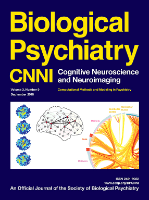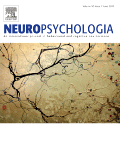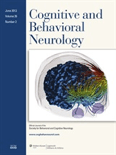
Cerebral Circulation-Cognition and Behavior
Scope & Guideline
Exploring the Nexus of Mind and Motion
Introduction
Aims and Scopes
- Vascular Contributions to Cognitive Decline:
Research focusing on the role of vascular factors in cognitive decline, including studies on small vessel disease, hypertension, and other cardiovascular risk factors affecting brain health. - Neuroimaging and Biomarkers:
Utilization of advanced imaging techniques and biomarkers to study brain structure and function, with an emphasis on identifying early indicators of cognitive impairment and dementia. - Intervention Studies:
Clinical trials and observational studies investigating the efficacy of various interventions, including pharmacological treatments and lifestyle modifications, aimed at preventing or mitigating cognitive decline. - Systematic Reviews and Meta-Analyses:
Comprehensive reviews synthesizing existing literature on topics related to vascular cognitive impairment, providing insights into current knowledge and identifying gaps for future research. - Patient-Centered Research:
Exploration of patient experiences and perspectives in the context of vascular cognitive disorders, including qualitative studies that inform clinical practices and interventions.
Trending and Emerging
- Integration of Social Determinants of Health:
An increasing focus on how social factors influence cognitive health and vascular conditions, recognizing the importance of holistic approaches to brain health. - Longitudinal Studies of Cognitive Trajectories:
A growing interest in longitudinal research designs to track cognitive decline and its association with vascular health over time, providing insights into progression and intervention timing. - Machine Learning in Cognitive Research:
The application of machine learning techniques to predict cognitive outcomes based on vascular health metrics is gaining traction, indicating a technological advancement in research methodologies. - Beta-Amyloid and Vascular Contributions:
Exploration of the interplay between beta-amyloid pathology and vascular factors in neurodegeneration, highlighting a more nuanced understanding of Alzheimer's disease. - Telehealth and Remote Assessments:
The rise of telehealth solutions for cognitive assessment and intervention, particularly in the context of the COVID-19 pandemic, is emerging as a significant area of research.
Declining or Waning
- Animal Models of Cognitive Disorders:
Research utilizing animal models to study cognitive disorders has decreased, possibly due to a shift towards human-centric studies that prioritize clinical relevance and applicability. - Nootropic Agents:
There has been a waning interest in the efficacy of nootropic substances for cognitive enhancement, as the focus shifts towards more evidence-based interventions and therapies. - Case Reports on Rare Conditions:
The publication of case reports detailing rare conditions related to vascular cognitive impairment has declined, reflecting a trend towards larger cohort studies and population-based research. - Generalized Cognitive Assessments:
Interest in broad cognitive assessment tools without a specific focus on vascular factors seems to be diminishing, as the journal emphasizes more tailored approaches that consider vascular health.
Similar Journals

NEUROPSYCHOLOGY REVIEW
Exploring the Intersection of Mind and BrainNEUROPSYCHOLOGY REVIEW is a prestigious journal published by Springer, dedicated to the exploration of cognitive processes and behavior through neurological and psychological perspectives. With its ISSN 1040-7308 and E-ISSN 1573-6660, this journal holds a distinguished position in Q1 of the Neuropsychology and Physiological Psychology category, ranking at #3 out of 76 with an impressive 96th percentile in Scopus. Since its inception in 1990, it has provided a critical platform for researchers, professionals, and students to disseminate and engage with comprehensive reviews and empirical research, promoting a deeper understanding of the interplay between neural mechanisms and psychological phenomena. Aimed at fostering interdisciplinary collaboration and advancement in the field, NEUROPSYCHOLOGY REVIEW invites contributions that push the boundaries of knowledge and stimulate ongoing debates in neuropsychology, making it an invaluable resource for anyone interested in the latest scientific advancements within this dynamic area.

Dementia and Geriatric Cognitive Disorders Extra
Enhancing understanding of aging through cutting-edge research.Dementia and Geriatric Cognitive Disorders Extra, published by KARGER in Switzerland, is an esteemed open-access journal dedicated to advancing research in the fields of cognitive neuroscience, geriatrics, and psychiatry. With a commitment to disseminating high-quality research since its inception in 2011, the journal plays a crucial role in highlighting innovative studies that address cognitive disorders associated with aging. As an open-access platform, it ensures that findings are accessible to a global audience, fostering collaboration and knowledge-sharing among researchers, professionals, and students alike. The journal has been recognized for its impact in Cognitive Neuroscience and Psychiatry and Mental Health, achieving a Q3 category ranking, indicating its reputable standing within these fields. By delivering cutting-edge insights and promoting interdisciplinary approaches, Dementia and Geriatric Cognitive Disorders Extra is instrumental in enhancing understanding and treatment of cognitive decline, making it a vital resource for anyone engaged in the study of aging and cognitive health.

Journal of Cognitive Enhancement
Unlocking the Secrets of Cognitive Enhancement.Journal of Cognitive Enhancement, published by SpringerNature, is a premier academic platform dedicated to advancing knowledge in the fields of Cognitive Neuroscience, Behavioral Neuroscience, and Experimental Psychology. With an electric combination of rigorous research and innovative practice, this journal has established itself as an essential resource for researchers, professionals, and students interested in understanding the mechanisms behind cognitive enhancement and its implications for mental health and cognitive function. As of 2023, it is recognized in the Q2 and Q3 quartiles across several categories, demonstrating its solid impact in the academic community, particularly with an impressive Scopus ranking of #27/76 in Neuropsychology and Physiological Psychology. Operating in a competitive landscape, the Journal of Cognitive Enhancement fosters open dialogue and collaboration through valuable contributions to cognitive research, facilitating insights that are crucial for practical applications in clinical and educational settings. While specific open access options are currently not defined, we encourage all interested scholars to explore the rich database of published works dating from 2017 to 2024, contributing to this dynamic field of study.

DEMENTIA AND GERIATRIC COGNITIVE DISORDERS
Pioneering research for a better understanding of dementia.DEMENTIA AND GERIATRIC COGNITIVE DISORDERS is a distinguished peer-reviewed journal published by KARGER, based in Switzerland. With a focus on the critical fields of cognitive neuroscience, geriatrics, and psychiatry, this journal is integral to advancing our understanding of cognitive decline and geriatric health. Despite being established from 1990 through 1992 and relaunching its scope in 1994, it has consistently provided a platform for innovative research, as reflected in its strong impact factor and notable Scopus rankings, placing it in the Q2 quartile for disciplines including cognitive neuroscience and geriatric medicine. The journal aims to foster interdisciplinary dialogue and collaboration among researchers, healthcare professionals, and educators, contributing to the growing field of dementia research and elderly care. Open access options further ensure that this vital knowledge is widely accessible, making a significant impact in both academic and clinical settings. With a commitment to quality and relevance, DEMENTIA AND GERIATRIC COGNITIVE DISORDERS remains a key resource for those dedicated to understanding and addressing the challenges posed by cognitive disorders in aging populations.

Biological Psychiatry-Cognitive Neuroscience and Neuroimaging
Illuminating the Pathways of Cognitive NeuroscienceBiological Psychiatry-Cognitive Neuroscience and Neuroimaging is a leading interdisciplinary journal published by Elsevier, focusing on the convergence of biological psychiatry, cognitive neuroscience, and advanced neuroimaging techniques. With its prestigious Q1 rankings across essential categories such as Biological Psychiatry, Cognitive Neuroscience, and Neurology (clinical), this journal is at the forefront of research that examines the complexities of mental health through innovative methodologies. Covering a broad spectrum of topics from neurobiological mechanisms to clinical applications, it aims to provide a platform for scholars and practitioners to exchange insights on mental disorders and their neurobiological underpinnings. The impact factor and Scopus rankings further underscore its importance, with rankings highlighting its position in the top percentiles of related disciplines. By fostering an open exchange of ideas and promoting cutting-edge research, this journal is an essential resource for researchers, professionals, and students dedicated to advancements in the understanding and treatment of psychiatric and neurological conditions.

Journal of Integrative Neuroscience
Transforming Ideas into Impactful Neuroscience DiscoveriesWelcome to the Journal of Integrative Neuroscience, a prominent platform dedicated to advancing the field of neuroscience by fostering interdisciplinary research and innovation. Published by IMR PRESS, this open-access journal has been committed to disseminating high-quality research since its inception in 2002, with a vision to integrate various aspects of neuroscience, from theoretical foundations to applied methodologies, ultimately enhancing our understanding of the brain and nervous system. With an evolving presence in the academic community, the journal holds significant rankings, such as Q2 in Medicine and Q3 in Neuroscience for 2023, reflecting its growing impact and value to researchers and professionals alike. The journal is accessible globally, having adopted an open-access model in 2018, ensuring that vital neuroscience findings reach a broader audience without barriers. Positioned in Singapore and serving an international readership, the Journal of Integrative Neuroscience is your essential resource for the latest insights and discoveries in a rapidly evolving field.

Neuropsychologia
Charting New Territories in Experimental Psychology and NeuroscienceNeuropsychologia, published by PERGAMON-ELSEVIER SCIENCE LTD, is a premier journal that delves into the intersections of psychology and neuroscience, specifically focusing on behavioral and cognitive processes. Since its inception in 1963, this esteemed journal has been a vital platform for researchers, professionals, and students, showcasing innovative studies and advancements in the fields of Behavioral Neuroscience, Cognitive Neuroscience, and Experimental Psychology. With a commendable impact factor, placing it in the Q2 category across multiple disciplines, Neuropsychologia is recognized for its contribution to the scientific community, ranking among the top journals in both Experimental and Cognitive Psychology and Neuroscience. The journal's commitment to excellence is evident in its rigorous peer-review process and its mission to disseminate cutting-edge research, making it an invaluable resource for those seeking to expand their knowledge and insights in neuropsychology. For further reading, the journal is accessible in both print and digital formats, ensuring that researchers can easily engage with the latest findings and theoretical advancements in this dynamic field.

Cognitive and Behavioral Neurology
Advancing the Frontiers of Cognitive and Behavioral NeurologyCognitive and Behavioral Neurology is a prominent peer-reviewed journal dedicated to advancing the understanding of cognitive and behavioral aspects of neurological disorders. Published by Lippincott Williams & Wilkins, this journal has established itself as a vital resource for researchers, clinicians, and students in the fields of cognitive neuroscience, neuropsychology, and psychiatry. With an ISSN of 1543-3633 and an E-ISSN of 1543-3641, it offers a robust platform for the dissemination of high-quality research, as evidenced by its positioning in the Q3 quartiles across various categories, including Cognitive Neuroscience and Psychiatry. The journal, which has been actively publishing since 2003, encourages innovative studies that explore the intersection of cognition and behavior in neurological contexts. As a vital contributor to the academic dialogue on these topics, it provides an essential archive of findings and discussions that inform clinical practice and educational approaches, reflecting its commitment to improving patient outcomes and enhancing neurological science.

Journal of Alzheimers Disease Reports
Bridging Gaps in Alzheimer's KnowledgeJournal of Alzheimer's Disease Reports, published by IOS PRESS, is an essential open-access platform dedicated to advancing research in the fields of clinical psychology, geriatrics, gerontology, neuroscience, and psychiatry. Since its inception in 2017, this journal has rapidly gained recognition, achieving a commendable status reflected in its 2023 category quartiles, notably ranking Q2 in Clinical Psychology and Psychiatry and Mental Health. With a sustained commitment to disseminating high-quality research and facilitating collaboration among scientists, the journal offers insights into the critical aspects of Alzheimer's disease and related cognitive disorders. Given its positions in the Scopus ranks, it serves as a crucial resource for academics and practitioners alike, empowering them to contribute effectively to the ongoing discourse in cognitive health. The journal embraces open access, ensuring that all research findings are freely available to the global community, thereby enhancing visibility and engagement. With a focus on fostering innovation and knowledge transfer, Journal of Alzheimer's Disease Reports is poised to make an enduring impact in the field of dementia research.

Neuropsychiatria i Neuropsychologia
Innovating Research in Behavioral Neuroscience and NeuropsychologyNeuropsychiatria i Neuropsychologia is a pivotal journal dedicated to the exploration of behavioral neuroscience, neuropsychology, and psychiatry, published by TERMEDIA PUBLISHING HOUSE LTD in Poland. This journal, with an ISSN of 1896-6764, has been a significant contribution to the scientific community since its inception in 2009 and continues to converge its findings until 2024. While it operates under a traditional access model, its commitment to disseminating research in these critical fields is unwavering. The journal currently holds a Q4 classification in multiple categories including Behavioral Neuroscience and Neuropsychology, reflecting its growing influence in the landscape of mental health studies. With Scopus rankings displaying a percentile standing in the bottom quartile, Neuropsychiatria i Neuropsychologia presents an opportunity for authors and researchers to contribute and engage with emerging findings in psychiatry and behavioral science. By fostering scholarly communication and collaboration, this journal serves as a valuable resource for researchers, professionals, and students seeking to advance their understanding and knowledge within these vital areas of study.